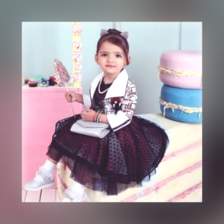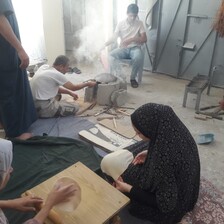The Electronic Intifada 26 June 2024

Israel has caused massive destruction in the southern Gaza city of Khan Younis.
APA imagesAmona is in her eighties.
At an early age she was forced to leave her home village of Yibna. Located in historic Palestine, Yibna was occupied by the Israeli military during June 1948.
Seventy-six years later, Amona is once again the victim of Israel’s brutality.
Not long before Israel declared its current genocidal war on Gaza, Amona moved into a new home with her son Khaled. It was situated in the Khan Younis area of southern Gaza.
Khaled and his wife had been saving and borrowing to build the house for more than two decades.
In the early stages of the war, the house became a place of shelter. Some members of the family evacuated Gaza City and headed to the house in Khan Younis.
During January this year, Amona was at home when Israeli troops attacked the surrounding area.
For more than 10 days, she and 11 others in her extended family were under siege. They stayed together in the center of the house as they felt that was the least dangerous place to be – though the whole situation was extremely dangerous.
The family had very little to eat and their supply of drinking water ran out after a week. They all lost a considerable amount of weight.
On one occasion, Amona’s grandson left the center of the house and went searching for some food. The Israelis opened fire on him, using a quadcopter.
“Miraculously, he survived,” Amona said.
A quadcopter was used several times to order that the family vacate their home. Having heard the screams of people being attacked on the streets, the family decided that it would be unwise to do so.
In early February, most of Israel’s tanks started to withdraw from the area.
One of the remaining tanks pulled up right outside their house.
The family heard Israeli soldiers speaking with each other before storming the house. One of the soldiers had a hand grenade and seemed about to throw it.
More than 30 heavily armed soldiers entered the home.
Immense cruelty
Holding electronic tablets, the soldiers ordered each member of the family to give their name and various other details. Next, they instructed the men to take off their clothes and lie down.
“It was cold and rainy,” Amona said. “I couldn’t look at my sons while they were handcuffed on a floor full of broken glass.”
The soldiers shot toward the wall of the house repeatedly.
After about 90 minutes of terror, the women and girls in the house were told to leave it. They included Amona.
The women and girls walked until they found a mosque, where they spent that night. The following morning, they headed toward Rafah, Gaza’s southernmost city, and took shelter in a relative’s house.
Amona’s sons Khaled, Ali and Aliyan were taken into detention, along with her 17-year-old grandson Izz.
Khaled, 50, was released after a couple of weeks.
“I didn’t know him,” Amona said. “He had lost weight and was injured in the head and leg and could barely walk.”
Khaled also had severe pain in his chest and had trouble breathing. It took a month before he could walk without difficulty.
He had been blindfolded and manacled during his detention and could not distinguish day from night.
Through contacts with other released detainees and a lawyer, the family have got some basic details about Ali, Aliyan and Izz.
According to their lawyer, Israel is accusing Izz of being an unlawful combatant. He had injuries due to being beaten severely by the Israeli soldiers.
It was a number of days after he was taken into detention before he received any medical attention.
Aliyan – Izz’s father – is being held under administrative detention, imprisonment without charge or trial.
The family is particularly worried about the fate of Amona’s eldest son Ali, 65. The lawyer has told them of unconfirmed reports that Ali died after being tortured in detention.
Ali’s son Muhammad had been killed by Israel in December.
Israel has inflicted immense cruelty on Amona, her children and grandchildren and on so many Palestinians.
Hanin A. Elholy is a researcher, writer and translator based in Gaza.





